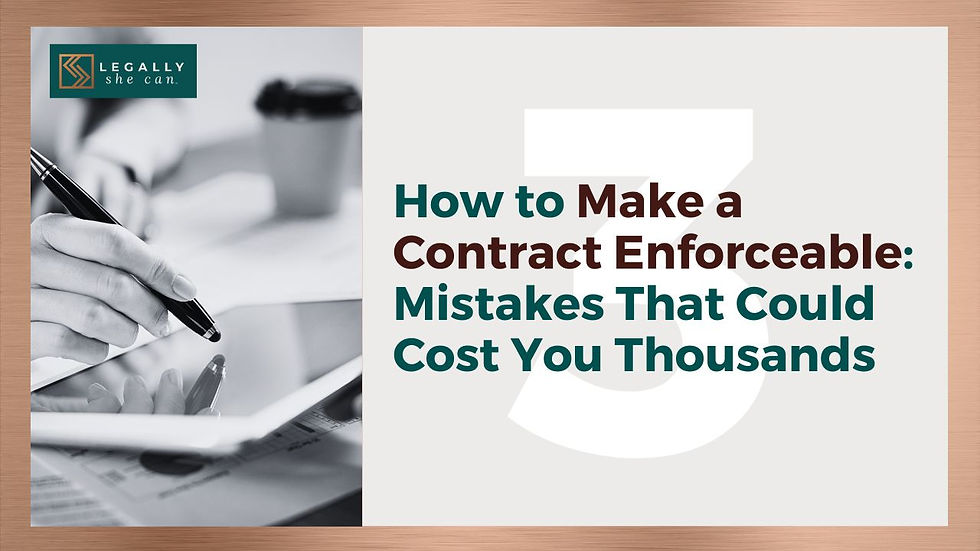7 Legal Templates Every Coach Must Have for a Secure Business
- Jun 22, 2023
- 3 min read
Updated: Feb 24, 2025
Coaching is a transformative journey, helping individuals achieve their goals and unlock their true potential. As a coach, you pour your heart and soul into your work, making a positive impact on your clients' lives.
To ensure the smooth operation of your coaching business and protect your hard-earned reputation, it's crucial to have the right legal templates in place. These templates act as your safety net, providing clarity, compliance, and peace of mind. Let's explore the must-have legal templates every coach should have on their business.
1. Client Agreement: A comprehensive agreement that outlines the terms and conditions of your coaching services, including payment terms, confidentiality, and cancellation policies. It sets clear expectations and protects both you and your clients.
2. Liability Waiver: This document releases you from liability for any injuries or damages that may occur during coaching sessions or related activities. It helps manage potential risks and ensures clients understand and accept any inherent risks involved.
3. Privacy Policy: A privacy policy is essential for your website. It explains how you collect, use, and protect personal information gathered from visitors or clients. It builds trust and demonstrates your commitment to safeguarding their data.
4. Terms of Use: These terms outline the rules and guidelines for using your website, including intellectual property rights, prohibited actions, and limitations of liability. It helps protect your content and maintain a respectful online environment.
5. Disclaimer: A disclaimer clarifies the limitations of your services and provides important disclosures about the nature of coaching. It states that coaching is not a substitute for professional advice and helps manage expectations.
6. Testimonial Release: If you plan to use client testimonials, this document grants you permission to use their feedback, name, and likeness for promotional purposes. It ensures you have the necessary rights to showcase the positive experiences of your clients.
7. Media Release for Guest Bloggers/Podcasters: If you accept guest bloggers on your website or as a guest on your podcast, a media release is essential. It grants you permission to use their submitted content, name, likeness, and any associated media for publishing and promotional purposes. This protects both parties and ensures you have the necessary rights to feature their work on your platform.
By incorporating these legal templates into your coaching business, you can establish a solid legal foundation, protect your interests, and cultivate trust with your clients.
Remember, you need to customize these templates according to the nature of your business, your processes, risks, and needs. It is not enough that you get free templates or create one without the guidance of a legal professional.
I know that legal compliance can be difficult and burdensome if you try to do everything all at the same time. But it doesn’t have to be! There is an easier and simple path.
FREE RESOURCES TO HELP YOU SUCCEED
Step 1: Start with the Free Business Checklist
Get your step-by-step guide to building a strong foundation for your coaching or consulting business.

Step 2: Watch the Free Training
Learn the five blind spots that can sabotage your success -- How to fix them, legally protect your business and gain peace of mind.
About the Author
Hi! I’m Vena Verga-Danemar, an Onlinepreneur Legal Strategist. As both a lawyer and an online business owner, I’ve helped dozens of coaches, consultants, and course creators legally start and grow their businesses using strategies that don’t require working 24/7.
Follow me in Instagram and Linkedin for tips and strategies on running a sustainable business that attracts leads and clients without the legal drama.













Comments